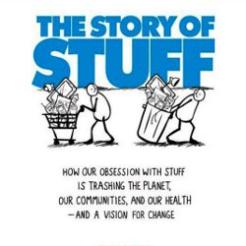Tania Mason worries that the scale and ambitions of civil society are no match for the mighty markets that are driving unprecedented consumption of our planet's resources.
Our analysis of the rate of change in the top 50 charities versus the top 50 companies over the last 25 years has thrown up no end of intriguing findings. For me, a particularly disturbing fact is the number of new companies that have joined the FTSE100 index whose reason for existence is to extract natural resources from the earth.
Of the 35 companies that are in the top 50 today that weren’t there at the launch of the index in 1984, four are energy providers, six are mining companies, and a further four extract other resources from the earth, such as gas and oil. Given that BP, Shell and Rio Tinto have remained in the index the whole time, this means that 17 of our 50 biggest companies exist to plunder our planet for profit to feed our consumptive lifestyles.
Thankfully, there are a growing number of civil society voices out there who are doing their best to explain that extraction on this scale is perhaps not in our best interests in the longer-term. WWF’s One Planet Living programme seeks to educate people that we cannot keep consuming three planets’ worth of resources indefinitely; Annie Leonard’s brilliant Story of Stuff film (pictured) shows with clever simplicity why the materials economy cannot work forever.
According to Leonard, who spent ten years travelling the world researching the Story of Stuff, in the past three decades one-third of the earth’s resources have been used up. Three-quarters of our global fisheries are being fished at or beyond capacity; 80 per cent of the world’s original forests are already gone. The market-driven system of extraction → production → distribution → consumption → disposal cannot last. As Leonard concludes: “You can’t run a linear system on a finite planet indefinitely.”
Yet the marketplace which drives this system is like a runaway train – out of control, highly dangerous, and apparently unstoppable. The value of the 50 biggest companies has multiplied 17 times in the last 25 years, while the income of their civil society equivalents has grown just nine-fold. And their respective values are in totally different leagues anyway: the income of the top 50 charities in 2010 is just over one-tenth of the value of the top 50 companies in 1984.
If you take the simplistic view that the market creates problems and civil society exists to fix them, then the ability of civil society to do its job seems woefully inadequate. Somehow we have to find a way to start thinking much, much bigger in order to bring about the kind of transformative changes that can stop the train from hurtling into oblivion. John Hilary, War on Want’s executive director, warns that charities must be wary of being consigned to play the nursemaid role, where it comes along after the damage has been done and can only pick up the pieces. Our biggest charities must be actively seeking out the kinds of “disruptive innovations” that Martin Brookes mentions – pioneering new ideas that have the power to fundamentally change the way things are done.









